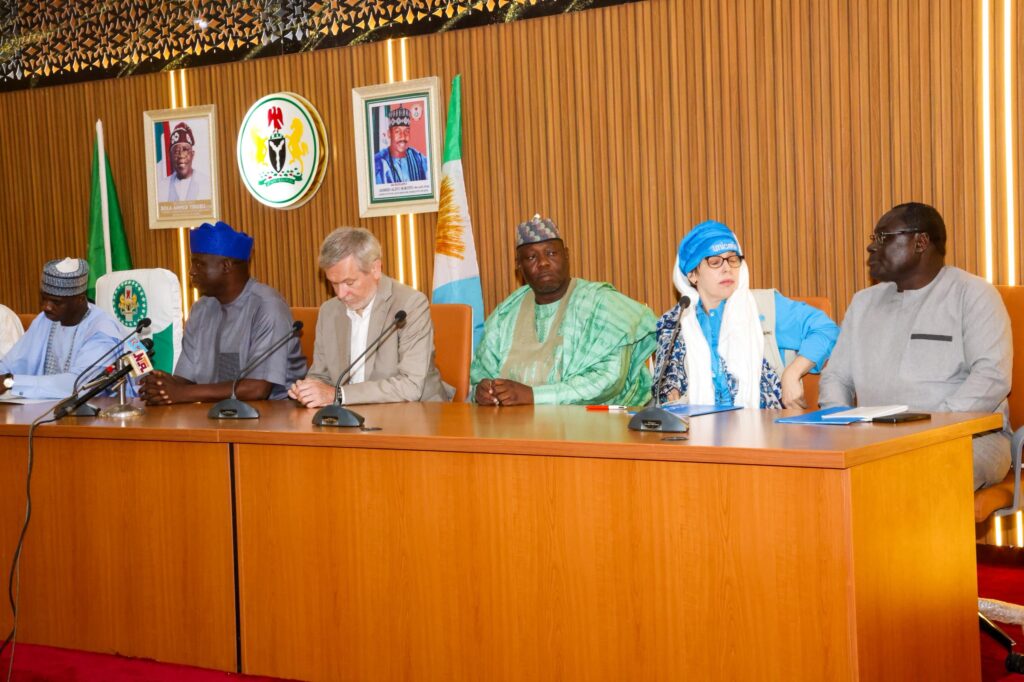The Minister of Humanitarian Affairs, Prof. Nantewa Yilwatda, has lauded the Sokoto State Government and its development partners for their efforts in combating malnutrition, particularly the surge in Severe Acute Malnutrition (SAM) among children.
Speaking during a high-level advocacy visit to Governor Ahmed Aliyu Sokoto, the Minister urged both the federal and state governments to scale up their commitments and resources toward addressing the nutrition crisis in the region. She shared her personal experience as an internally displaced person (IDP), emphasizing the value of peace and calling on the Sokoto State Government to explore homegrown solutions, especially through its capacity for large-scale grain production.
In his remarks, Governor Ahmed Aliyu thanked UNICEF and its partners for their unwavering support across sectors and noted that his administration had committed ₦500 million to the fight against malnutrition.
The UNICEF Country Representative described the current nutrition crisis as alarming, citing findings from a recent SMART survey. He announced that UNICEF had provided ₦1.5 billion in counter-funding to support the state’s efforts and encouraged the adoption of local and sustainable approaches to address SAM.
Also present was the EU Ambassador to Nigeria and ECOWAS, Ambassador Gautier Mignot, who commended the state government for its hospitality and reaffirmed the European Union’s commitment to supporting malnourished and vulnerable children across Sokoto and Nigeria at large.
The advocacy delegation later visited a health facility in the state capital alongside the Deputy Governor, where they observed the treatment of SAM cases managed by Médecins Sans Frontières (MSF) and UNICEF. They expressed concern over the overstretched resources at the facility and warned that the malnutrition crisis could escalate during the upcoming peak season.
UNICEF, MSF, and Action Against Hunger (ACF) called for urgent federal intervention to sustain the operations of treatment centers beyond September. They noted that over 30 containers of Ready-to-Use Therapeutic Food (RUTF) remain stuck at Nigerian ports due to bureaucratic bottlenecks.
In response, Prof. Yilwatda instructed officials to compile a detailed report on the obstacles hindering the importation of RUTF and promised to coordinate with relevant agencies to facilitate their release.
The visit underscored the critical need for immediate, coordinated, and sustained efforts from all levels of government and development partners to curb the worsening malnutrition situation in Sokoto State.















